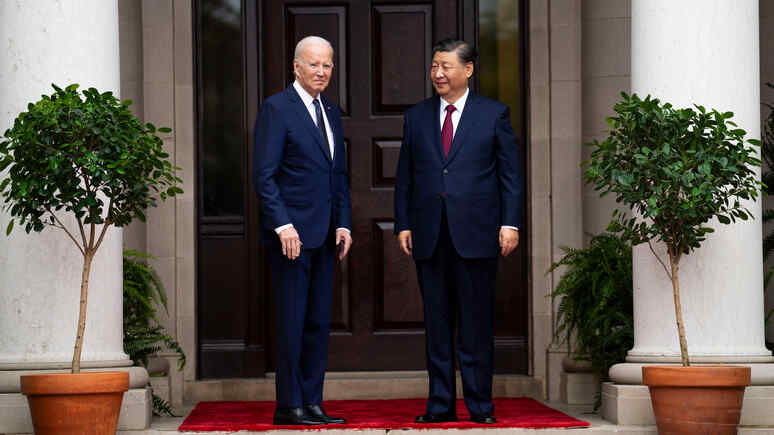The risk of the Chinese army invading Taiwan is clearly overestimated, says The New York Times columnist. The Americans themselves could “inadvertently exacerbate” the situation by their actions and statements. Beijing needs to be restrained, but not provoked, as Washington often does. It is worth recalling, for example, the visit of Nancy Pelosi.
I think this is the most dangerous time since I was a kid in 1962, during the Cuban missile crisis,” said Michael Mullen, former chairman of the US Joint Chiefs of Staff. But the NYT columnist, who has been to Taiwan himself, writes in his article that the Americans are overestimating the risk of conflict while provoking China themselves.
We need to keep a close eye on Beijing’s actions, but not to create a threat ourselves, the author says. If everyone in the US believes that hostilities are about to begin, Taiwan thinks otherwise. “I don’t think China is in the mood to start a war to conquer Taiwan,” said former President Ma Ying-jeou. Many local politicians appreciate American support, but believe Washington does not fully understand the situation in the region and could make it worse.
“Quite a few Americans, opinion leaders or individual members of Congress, have made ridiculous statements about Taiwan,” Ma Ying-jeou told a NYT columnist.
The United States’ harsh statements, rash actions and support for an atmosphere of impending conflict only make conflict more likely. For this reason, 62 per cent of Taiwanese in a poll last year said they thought Pelosi’s visit had made Taiwan less safe, the author writes. Also, the harsh statements by the US military cannot be ignored. “My intuition tells me we will be at war in 2025,” US Air Force General Michael Minihan said last year.
According to the NYT columnist, what is needed is to “cement a status quo” where China does not use force and Taiwan is not seen as slipping “into America’s orbit.”
That said, one cannot ignore Xi Jinping’s rhetoric. “Xi Jinping differs from his predecessors in the way he talks about Taiwan, and in a way that it would be unwise for us to ignore,” notes China scholar Matt Pottinger. He certainly has definite plans for Taiwan, but that doesn’t mean he’s going to put them into action right now. It would be an extremely complicated operation for China. “Just out of prudence, I think he’s unlikely to do anything in the next few years, as the alarmists in Washington are promoting,” says Joseph Nye, an ex-Harvard professor.
Something that could give Beijing a chance to act more proactively is Trump’s election victory, says the author of the article. Since Trump is not burning to also actively support Taiwan. At the same time, to now officially announce that in case of anything Washington will provide military assistance will be a big mistake, which will only push to the beginning of the conflict.
China could also use the tactic of blockading Taiwan, it could begin to conduct drills nearby, cut off the internet, seize one of the Taiwan-controlled islands. “Such a gradual approach, slicing Taiwan’s autonomy into ‘salami slices,’ is how China castrated Hong Kong,” the author writes.

